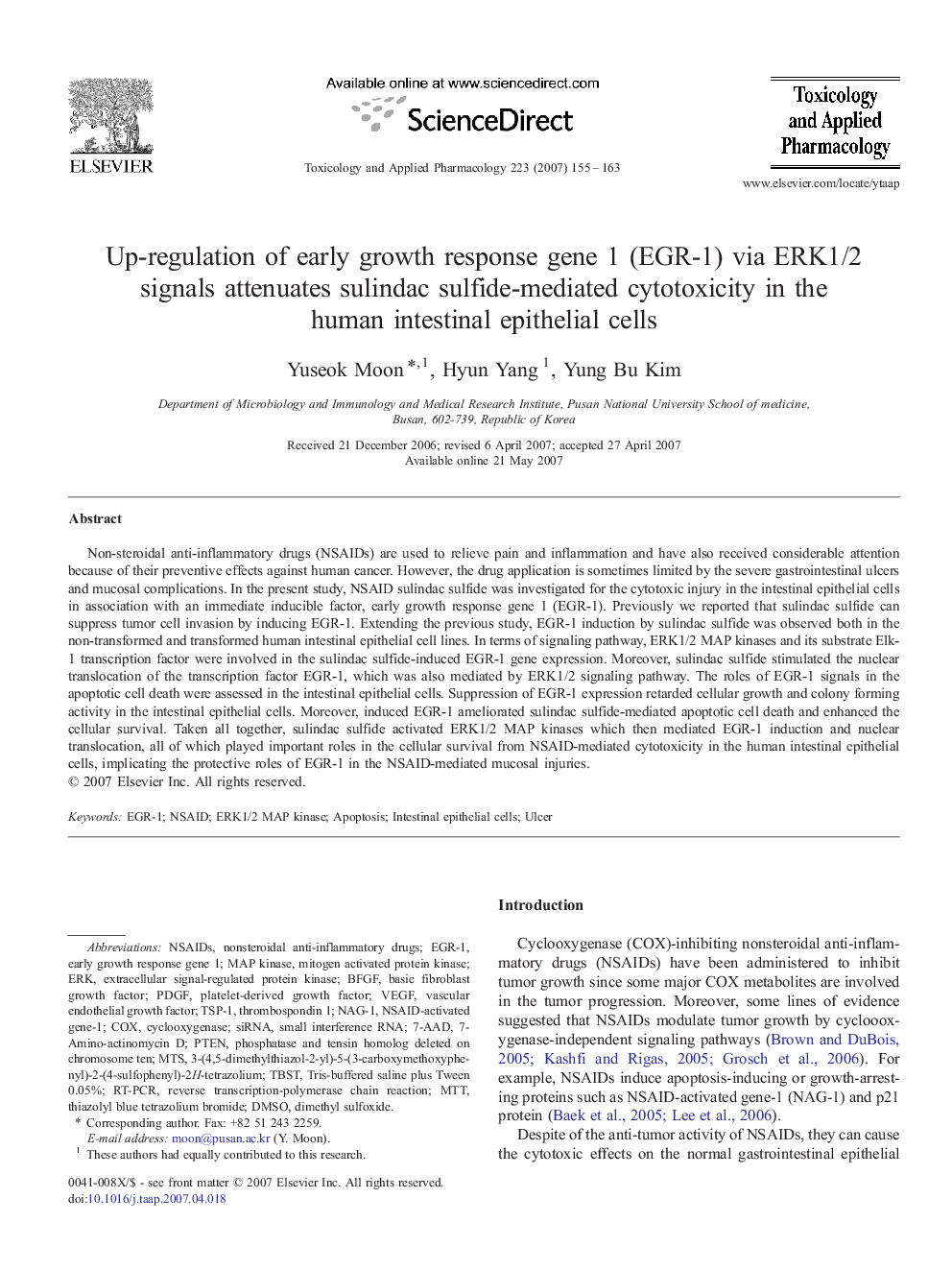| Article ID | Journal | Published Year | Pages | File Type |
|---|---|---|---|---|
| 2571849 | Toxicology and Applied Pharmacology | 2007 | 9 Pages |
Non-steroidal anti-inflammatory drugs (NSAIDs) are used to relieve pain and inflammation and have also received considerable attention because of their preventive effects against human cancer. However, the drug application is sometimes limited by the severe gastrointestinal ulcers and mucosal complications. In the present study, NSAID sulindac sulfide was investigated for the cytotoxic injury in the intestinal epithelial cells in association with an immediate inducible factor, early growth response gene 1 (EGR-1). Previously we reported that sulindac sulfide can suppress tumor cell invasion by inducing EGR-1. Extending the previous study, EGR-1 induction by sulindac sulfide was observed both in the non-transformed and transformed human intestinal epithelial cell lines. In terms of signaling pathway, ERK1/2 MAP kinases and its substrate Elk-1 transcription factor were involved in the sulindac sulfide-induced EGR-1 gene expression. Moreover, sulindac sulfide stimulated the nuclear translocation of the transcription factor EGR-1, which was also mediated by ERK1/2 signaling pathway. The roles of EGR-1 signals in the apoptotic cell death were assessed in the intestinal epithelial cells. Suppression of EGR-1 expression retarded cellular growth and colony forming activity in the intestinal epithelial cells. Moreover, induced EGR-1 ameliorated sulindac sulfide-mediated apoptotic cell death and enhanced the cellular survival. Taken all together, sulindac sulfide activated ERK1/2 MAP kinases which then mediated EGR-1 induction and nuclear translocation, all of which played important roles in the cellular survival from NSAID-mediated cytotoxicity in the human intestinal epithelial cells, implicating the protective roles of EGR-1 in the NSAID-mediated mucosal injuries.
